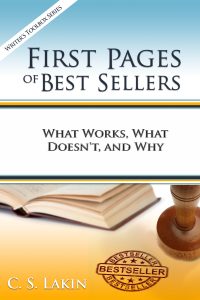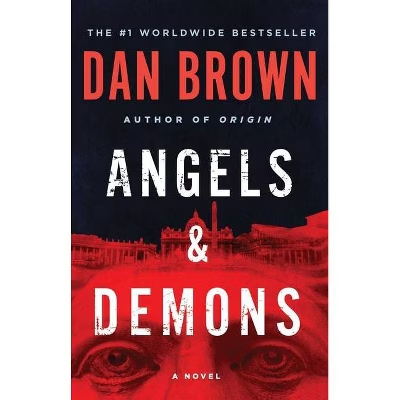A Deep Look at Deep Editing
What makes the difference between a good novel and a great one? Simple: the editing. Seasoned fiction writers know that in order to reach a pinnacle of excellence with their writing, they have to be “brutal self-editors” (quoting Jerry Jenkins here).
The problem is most writers, whether newbies or experienced, don’t have training on how to edit effectively. It’s not just about hacking away or chopping out unnecessary or weak wording. Or padding scenes with lots of adjectives and sensory detail. Editing, or revising, needs to be strategic.
Many writers go through their scenes, looking for a word to replace, an additional description to add, or a way to make the dialogue more humorous or engaging. All those things are good to do. But when you are reviewing a scene you wrote, especially a first pass through, you need to be in a kind of attack mode. That doesn’t mean you consider what you wrote is terrible and must hate it in order to improve it. I definitely do not take the view that all first drafts are awful, as some claim.
If you embrace a strategic way to edit, it allows for a more positive approach to your writing. Yes, you can be positive and “brutal” at the same time!
Becoming a great self-editor takes a lot of time and practice, and one of the most important things you can do is study great writing. I’ve said it repeatedly over the years, more times than I could count: read current best sellers in your genre, by authors whose writing you love and want to emulate, and deconstruct what they’re doing.
How does this apply to editing? When you see how your favorite authors write “tight,” structure their sentences, paragraphs, and scenes, you will learn a lot.
You can also learn much from the weak writing they exhibit. Just because they are successful, admired authors, it doesn’t mean they are perfect in their execution. In fact, when you develop the skills of masterful writing, it’s easy to see the flaws in these best sellers and learn from them.
When I was compiling all the posts on the first pages of best sellers, measuring these pages up against my first-page checklist, I was quite astonished to see how many of these opening paragraphs were basically awful. Many were boring. Many rambled. Many dragged on in narrative without setting the stage or showing meaningful action.
Best-selling authors can get away with all that, most of the time, because their fans will tolerate weak writing (up to a point), trusting the story will get underway (eventually), and the author will again deliver a great story.
That said, it’s not wise to use that reasoning as an excuse to write badly (pointing to them as an example of how “they did that, so I can too”).

have a recording I provide as a bonus in my course 8 Weeks to Writing a Commercially Successful Novel, which tears apart the opening scenes of Dan Brown’s blockbuster novel Angels and Demons. I use it as an example of pretty awful writing and point out many of the flaws and why they should have been deleted or rewritten.
It may seem arrogant of me (or anyone) to critique someone as successful as Brown and show how and why the writing is weak. But I believe we all should do that. Not look for flaws just to make us feel better but to grow in our ability to spot weaknesses so we can self-edit better.
I’ve posted a lot about POV issues. In the last post I discussed some of these “violations” of POV that writers fall into. Dan Brown does a textbook example of a POV violation that I feel is quite egregious, especially because he does this in the important opening pages of his novel, which should focus solely on the tense action and high stakes that sets up his story premise.
Take a look at this passage and see if you can identify why it’s problematic:
Angels and Demons

As Langdon sat on his brass Maharishi’s chest and savored the warmth of the chocolate, the bay window caught his reflection. The image was distorted and pale … like a ghost. An aging ghost, he thought, cruelly reminded that his youthful spirit was living in a mortal shell.
Although not overly handsome in a classical sense, the forty-five-year-old Langdon had what his female colleagues referred to as an “erudite” appeal—wisps of gray in his thick brown hair, probing blue eyes, an arrestingly deep voice, and the strong, carefree smile of a collegiate athlete. A varsity diver in prep school and college, Langdon still had the body of a swimmer, a toned, six-foot physique that he vigilantly maintained with fifty laps a day in the university pool.
Langdon’s friends had always viewed him as a bit of an enigma—a man caught between centuries. On weekends he could be seen lounging on the quad in blue jeans, discussing computer graphics or religious history with students; other times he could be spotted in his Harris tweed and paisley vest, photographed in the pages of upscale art magazines at museum openings where he had been asked to lecture.
Although a tough teacher and strict disciplinarian, Langdon was the first to embrace what he hailed as the “lost art of good clean fun.” He relished recreation with an infectious fanaticism that had earned him a fraternal acceptance among his students. His campus nickname—“The Dolphin”—was a reference both to his affable nature and his legendary ability to dive into a pool and outmaneuver the entire opposing squad in a water polo match.
As Langdon sat alone, absently gazing into the darkness, the silence of his home was shattered again, this time by the ring of his fax machine. Too exhausted to be annoyed, Langdon forced a tired chuckle.
Avoiding the POV Pitfall of Self-Decription
We see here the old “character looks in a mirror or window in order to describe himself” device. Sometimes it works, but it’s understood as a cheat most of the time. Clearly, Brown is wanting to get a description in of his protagonist in the opening pages, so he interrupts the scene in order to do this info dump.
The way this is written feels out of POV in many ways. Perhaps Langdon does think with these types of phrases: “My youthful spirit is living in a mortal shell” and “I have probing blue eyes and an arresting voice.” But, honestly, I can’t imagine anyone staring at their reflection and thinking, “My friends view me as an enigma, a man caught between centuries.” Really?
It all sounds so pretentious to me. I would never be drawn to a person (or character) who thinkings of himself as “embracing the lost art of good clean fun” or as one who “relishes recreation with an infectious fanaticism … with an affable nature and legendary ability to outmaeuver” a whole squad of polo players.
All this is dumped into a scene that is supposed to kick off a high-stakes, fast-paced thriller.
I’d like to encourage you to download my PDF of my edits of these opening pages of Brown’s novel. Some of the comments or edits you may not fully grasp because you probably need to watch the video of my analysis and process of going through and editing (mostly cutting) his lines. If this kind of editing instruction is helpful to you, consider taking my course to get a full, deep education in how to write terrific scenes, avoid fatal flaws of fiction writing, and learn how to do analysis like this with any scene you read in any novel.
A great novel is all about the editing and revision. If you want to know exactly what your weak areas are in your writing, scene structure, pacing, or any other elements in your story, hire me. Get a 50-page critique or a scene outline critique. Sign up for a coaching or mentorship package. AI is not going to show you what you need to learn and work on or how to improve your writing to turn your so-so or even good novel into a great one.
Featured Photo by Towfiqu barbhuiya on Unsplash









